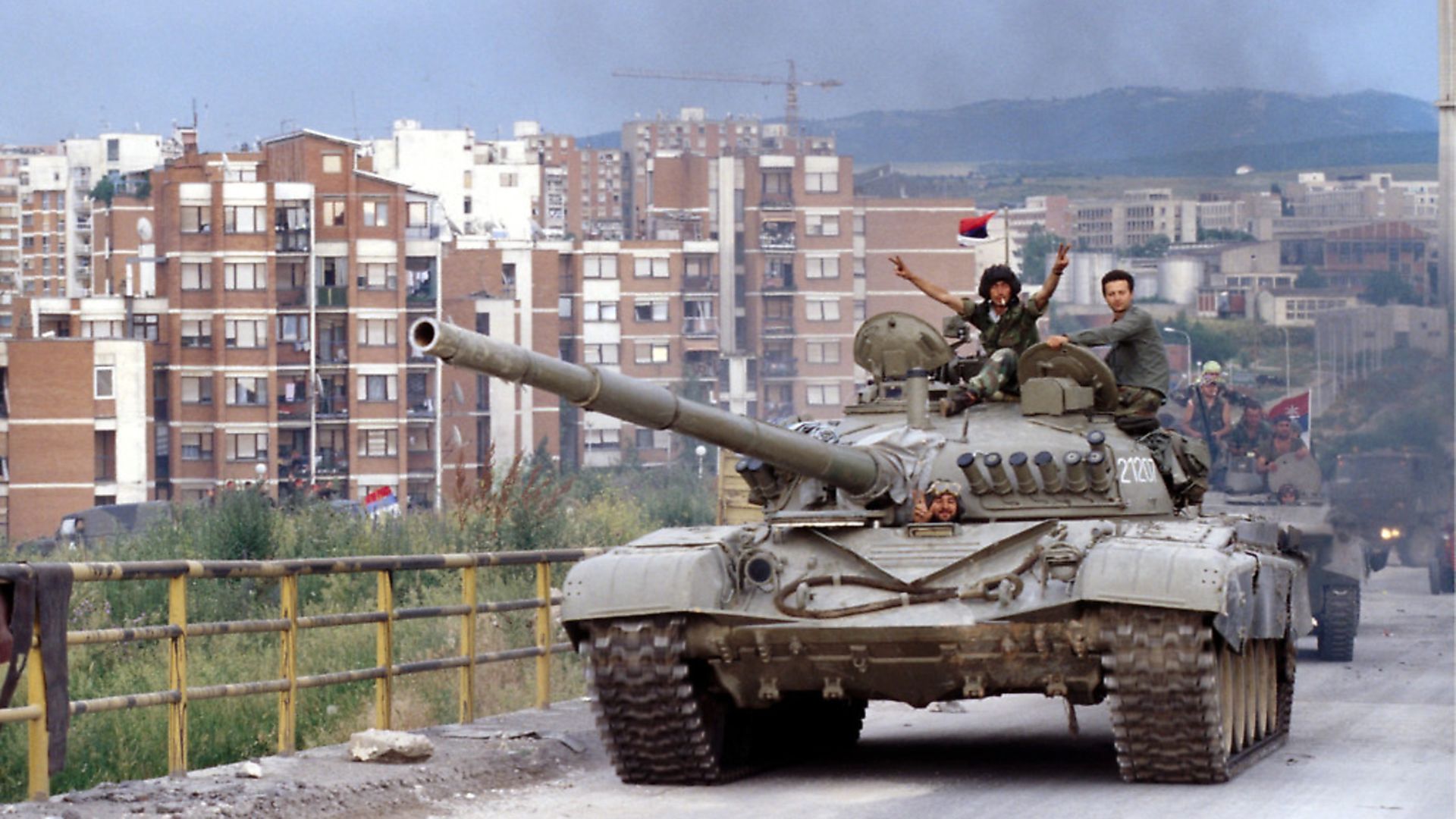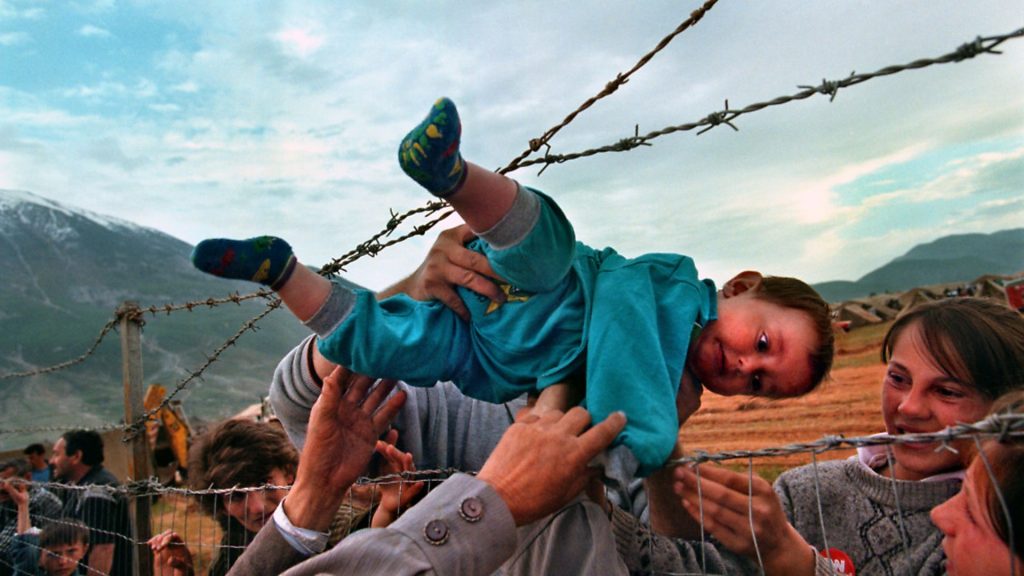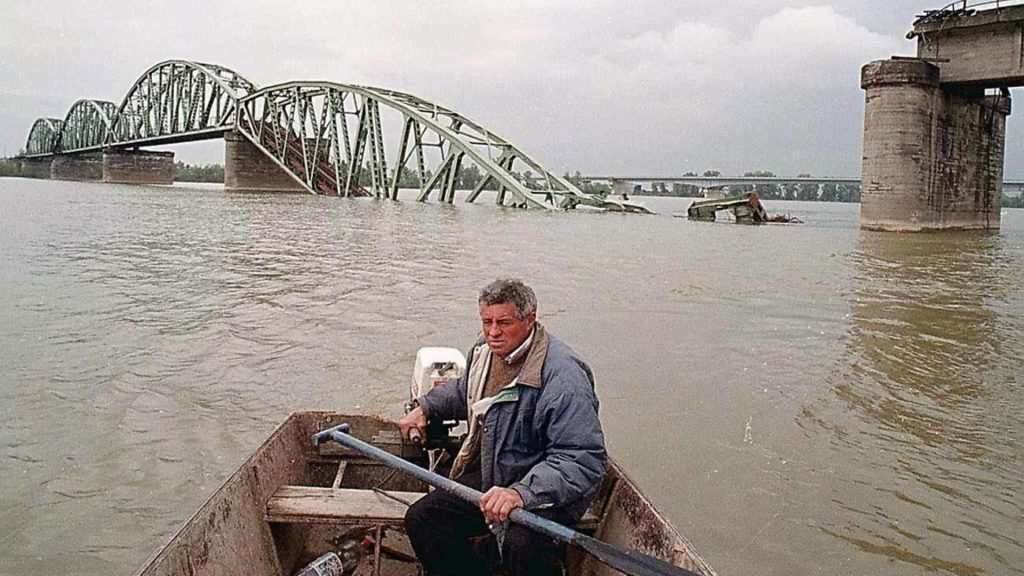
Twenty years since the shooting stopped in the Balkans, Denis MacShane asks if the region can yet move on from its bloody history

Twenty years ago the last shooting war in Europe was at its height. Serbia and Kosovo were locked in a conflict of liberation rather like that between Britain and Ireland in 1920.
Half the population of Kosovo had fled for sanctuary in Macedonia and Albania. There could be only one outcome. Just as America after 1918 gave support to the Irish to be free so Washington, at the end of the 1990s, had run out of patience with Serbia. Nato jets put an end to the ethnic cleansing, and a few weeks later the Serbs occupation of Kosovo came to an end.
The war was the last disaster of a decade of disasters for Slobodan Milosevic, who began it as president of the Socialist Republic Serbia – the largest of Yugoslavia’s six republics – and ended it as president of the much diminished Yugoslavia itself, by then comprising just Serbia and Montenegro.
Beginning with Slovenia, the component parts that had formed Yugoslavia from 1945 to 1990 went their own way: Croatia, Bosnia-Herzegovina, Macedonia and Kosovo. In 2006, Montenegro did so too. In a perfect world, these parts might have held together in a loose federation, but Serb supremacists ensured that option was closed.

But where has ‘their own way’ led the former countries of Yugoslavia? In contrast to the ex-communist nations of central and eastern Europe, which are now firmly embraced within the European Union, most of the smaller nations of the western Balkans are still on the outside. Only Slovenia (which joined in 2004) and Croatia (2013) have become EU members. The others are anxious to follow, but still waiting.
Some progress has been made, to be sure. Last year, the leaders of Greece and Macedonia finally managed to do what had eluded all their predecessors since the break-up of Yugoslavia. Alexis Tsipras and Zoran Zaev powered through an agreement on what to call the latter’s country, which, since independence in 1991, has shared the name of the much bigger, northern Greek region of Macedonia – much to the frustration of the Greeks, who have been standing in the way of the country’s accession to the EU. Some hurdles remain, to ratify the agreement in Greece, but the country previously known as the Republic of Macedonia will become North Macedonia, to the satisfaction of most.
The almost 30 year Athens-Skopje spat over the name may seem surreal to more settled European capitals north of the Alps but it is emblematic of the emotional, bitter, identity politics that still bedevils the Balkan nations that have been unable to find their way to Europe. So its resolution is a significant sign that obstacles towards EU membership are being tackled.
For Serbia, the biggest block has been the unsettled status of Kosovo, which Belgrade officially considers a temporary breakaway province which will one day return to its rule. But here, too, are signs of a softening. The Serb and Kosovan presidents have been meeting under EU auspices – and often in adjoining rooms – in search of a breakthrough. In one promising sign of progress, the Kosovan president, Hashim Thaci, dangled before his Serb opposite number, Aleksandar Vucic a territorial swap involving Kosovo’s northernmost region, above the Ibar river, which is occupied by Serbs and de facto if not de jure ruled from Belgrade, in exchange for a majority Albanian-populated region of southern Serbia, adjacent to Kosovo. Yet Thaci does not have the votes in the Kosovan parliament and his own prime minister, Ramush Haradinaj, from another party, is opposed.
Vucic himself is not an ideal candidate to deliver progress on the matter. He blows hot and cold, sometimes saying his old mentor Milosevic was a disaster, yet also insisting that Serbia will never recognise the existence of an independent, sovereign Kosovo. He is more dominant in Serb politics than Thaci is in Kosovo, but Vucic is a nationalist populist – something not unheard of in the EU, but which presents practical difficulties when it comes to securing Serbian membership.
As so often in the region, it is not entirely clear who is playing whom. Old West Balkan hands like the late Paddy Ashdown, who was European viceroy in Bosnia, hold up their hands in horror at the idea of land swaps and redrawing frontiers, as do diplomats in London and Berlin. Yet others, including Washington, say it can be explored.
Indeed, in an unexpected twist last month, Donald Trump – the self-styled deal-maker – made a personal intervention in the faltering Serbia-Kosovo talks, urging both leaders to seize the opportunity for a permanent agreement, and offering the prospect of a White House summit to help clinch it. Thaci, hamstrung by domestic politics, would jump at such an offer but Vucic – in his own way, equally constrained by an audience at home wary of seeming to make concessions – has recoiled from a final settlement.
Trump’s involvement has upped the stakes in the Balkans, giving a little more urgency to matters, which have been unfolding under the slow but steady aegis of the EU. But whether it helps or hinders remains to be seen, but his characteristic unpredictably is hardly encouraging for the prospects of stability.
Meanwhile, that other great global disrupter, Vladimir Putin, remains a key player in the Balkans. His interest, of course, is in preventing the states there getting closer to the EU and to Nato. Last summer the Greek government expelled two Russian diplomats over Kremlin efforts to bribe Macedonian politicians to vote against the name deal. The Russian meddling failed as Tsipras won a vote of confidence on the issue in January.
The Kremlin, meanwhile, has been falling over itself to offer Serbia military advice and assistance, in an effort to fan the flames of festering Serb resentment of the western interventions of the 1990s. A Russian so-called ‘humanitarian relief base’ has been established in Serbia which western diplomats fear is a spy hub; Moscow has provided some elderly MIG fighter jets at a bargain basement price, so Vucic can claim Serbia now has an air force; Gazprom controls most of Serbia’s gas market; and Sputnik, the Kremlin propaganda news agency, has a base in Belgrade to disseminate anti-EU lines.
Moscow’s diplomats are also working around the globe to block Kosovo access to the UN and other international bodies, and to persuade countries not to recognise Pristina diplomatically. For its part, Kosovo has invested massively in lobbying politicians. The likely new chair of the Congress foreign affairs committee, Eliot Engel, a Democrat, was a strong supporter of Kosovo in its war of independence. (He even has a street named after him in the Kosovo town of Peja). But the same effort has not been put into mobilising political support for Kosovo in the EU, in Brussels and key European capitals.
Montenegro also remains a key focus for Moscow’s meddling – most spectacularly in the 2017 apparent coup attempt to remove the country’s pro-Western government.
Yet strangely, it is not the unpredictable president Trump or even president Putin – whose position is well known – who now worries Balkan leaders most. Rather, it is president Macron. A few months after he entered the Élysée Palace in 2017, he was holding out a welcoming hand, declaring: ‘The EU will have to open itself up to the Balkan countries, because our EU is still attractive and its aura is a key factor of peace and stability on our continent.’
Come May 2018, though, and his tune had changed dramatically, as he declared he was no longer ‘in favour of moving toward enlargement before having before having made a real reform to allow a deepening and better functioning of the European Union’. In doing so, incidentally, he was expressing the same views of those opposed to enlarging the EU to the east before 2004: that the Union had to reform itself before it could get any bigger; that it should deepen, before widening.
The real or – realpolitik – reason for Macron’s volte-face is that, ahead of May’s European parliamentary elections, he does not want to hand his opponents a powerful weapon: the ability to depict him as an enthusiast for letting in to the EU the poor, conflict-ridden countries of the Balkans, where, France’s rightist politicians headed by Marine Le Pen would be sure to point out, around a third of the population are Muslim.
As big a blow to Balkan hopes as Macron’s back-pedalling is the waning of Angela Merkel’s influence, ahead of her ultimate departure from the German chancellory. She has always been a key supporter of integrating the region into the EU, albeit with an insistence that for Serbia to join, it must first recognise Kosovo.
Without her, there are no big champions for Balkan membership left at the EU’s top table. The drive towards membership risks losing impetus, just as obstacles are laboriously removed.
Part of that momentum, surely, came from the traumatic experiences of the region in the 1990s. But Europe now has a new generation of political leaders, with little significant memory and understanding of that bloody decade, the Serb-initiated aggression, the bombing of Sarajevo, the Srebrenica massacre and the ethnic cleansing of Kosovo.
Pristina invests massively in lobbying US politicians. The new chair of the Congress Foreign Affairs Committee, Eliot Engel, a Democrat, was a strong supporter of Kosovo in its war of independence. He even has a street named after him in the Kosovo town of Peja. But the same effort has not been put into mobilising political support in Brussels and key European capitals.
To be sure, the last two decades have been far more peaceful for the region the years which came before. But the question of where exactly the region is heading remains unanswered. These countries, geographically so close to the heart of Europe, remain at risk of stagnation.
The European dreams of Belgrade, Sarajevo, Pristina, Tirana, Skopje and Podgorica seem premature.
Denis MacShane was the UK minister for the Balkans 2001-05
TIMELINE:
A BLOODY DECADE: THE 1990s IN THE BALKANS
1991
Slovenia and Croatia declare independence from Yugoslavia. An EU-ceasefire sees the Yugoslav army withdraw from Slovenia after ten days of fighting. However, a four-year conflict begins in Croatia, where Serbian troops side with ethnic Serb rebels; Macedonia declares its independence
1992
Conflict escalates in Bosnia, which had also declared independence, with ethnic Serbs living there determined to remain within Yugoslavia; Bosnian Muslim government besieged in the capital Sarajevo, surrounded by Bosnian Serb forces who controlled around 70% of Bosnia
1995
Safe haven of Srebrenica overrun by Bosnian Serb forces under General Ratko Mladic, who massacre over 8,000 Muslims; Dayton accords end Bosnian war
1996
Croatia restores diplomatic relations with Yugoslavia
1998
Kosovo Liberation Army rebels against Serbian rule, prompting a brutal crackdown and the fleeing of hundreds of thousands of Kosovo Albanians
1999
Defiance by Milosevic over Kosovo sparks Nato air strikes against Serbian targets; Milosevic agrees to withdraw forces from Kosovo, which becomes UN protectorate but stays de jure part of Serbia










